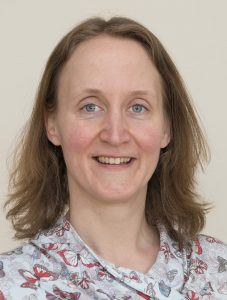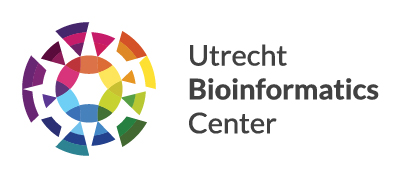 After a PhD and a postdoc position in the bioinformatics field, I left science to work for a company that makes products for in vitro diagnostic use. At this company I was able to use my (bioinformatics) knowledge, but also to learn about managing a team and software products. Here, I got a good insight in what is needed to make software for diagnostic use.
After a PhD and a postdoc position in the bioinformatics field, I left science to work for a company that makes products for in vitro diagnostic use. At this company I was able to use my (bioinformatics) knowledge, but also to learn about managing a team and software products. Here, I got a good insight in what is needed to make software for diagnostic use.
At the moment I am the head of bioinformatics at the section Genome Diagnostics (UMCU), and apply my knowledge about software ‘as a medical device’, including all the laws and standards that are attached. My goal is to keep my team motivated to run, create and innovate bioinformatics needed for diagnostics.
Genome Diagnostics
The Genome Diagnostics section focuses on the diagnosis of a large number of hereditary, congenital and acquired disorders. To assist in the detection of disease causing variants, the bioinformatics team is responsible for (automated) processing and visualisation of NGS data. We currently process data of over 5000 patients per year, in which >100 specific disease-related gene-panels are screened using whole exome sequencing (WES). A fully automated pipeline was developed for rapid processing of high priority WES samples, such as those for ill new-borns in the neonatal care units.
Gain and maintain insights
The bioinformaticians in my team create and run pipelines and tools for genome diagnostics, but also for metabolic diagnostics and pathology. Even though the diagnostic questions between these groups differ, we share knowledge about bioinformatic approaches and insights. Also, knowing each other’s work allows us to troubleshoot and to be each other’s backup. We also develop (visualisation) tools to allow non-bioinformaticians to gain more insight into data and their quality. Moreover, we are involved in several research projects to gain and maintain insights in the latest bioinformatic developments.
More information
You can contact me for thoughts related to software or bioinformatic developments within a diagnostic setting. I am familiar with ISO-13485, ISO-15189, IEC-62304, and involved in several IVDR workgroups (the new European Law for in vitro diagnostic tests).
You can also contact me for any (research) project involving patients and bioinformatics.

